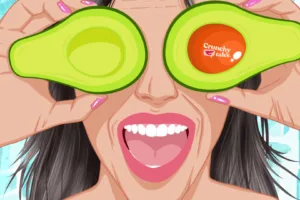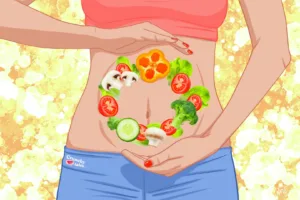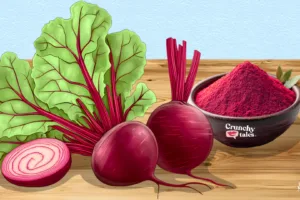6 Simple Sugar Detox Hacks You Should Know
Do you know that an excess of processed sugar in your diet can cause dark circles, wrinkles, dehydrated skin and can fast track the ageing process?
Sugar makes you fat, ugly and old- says Brooke Alpert, a registered dietitian and co-author of ‘The Sugar Detox: Lose the Sugar, Lose the Weight — Look and Feel Great‘. – What we’ve discovered in the last couple of years is that sugar is keeping us overweight. It’s also a leading cause of heart disease; it negatively affects the skin, and it leads to premature ageing.
What’s more, sugar imbalances hormones, mood, energy, blood sugar, suppresses the immune system and it can be very addictive, too. Due to a process called ‘glycation‘, sugar molecules attach to collagen and elastin, two proteins that keep skin looking young, weakening your skin’s support structure and lead to lines and wrinkles.
Break the sugar addiction
According to the American Heart Association guidelines, women shouldn’t have more than 100 of our daily calories (about 6 teaspoons) from added sugar. However, it’s not very easy to stay on track as sugar is in just about everything we eat, from natural sugars in foods like fruit and vegetables to added sugars in processed foods including soft drinks, cakes and biscuits.
If you’re hooked on sugar, though, don’t try to eliminate it all at once. Changing your diet is hard and you’ll likely end up thinking about sugar all the time. It’s much more effective and doable to come up with a few simple rules and habits than yet another 21-day detox.
Sugar detoxing your way
Also, there’s no standard for what a ‘sugar detox‘ entails or what foods you must cut out when you say you’re going to stop eating sugar.
According to nutritionist Alissa Rumsey, MS, RD, author of ‘Unapologetic Eating‘: “Some people cut out all sweets or dessert type foods; others will cut out sweets and packaged foods that contain sugar; while other people go even more extreme and stop eating most carbohydrates in addition to sweets and packaged foods.”
Here are a few suggestions to help you break the sugar habit:
- Clean out your pantry
Toss obvious sources like soft drinks, packaged foods, candy, cakes and cookies. Reduce and ultimately eliminate processed sugar. Things like store-bought salad dressings, sauces, condiments, juices, frozen meals, dried fruits, and flavoured yoghurts all contain sugar, too. Check the label if you’re unsure. Avoid products that list sugar as the first ingredient and be wary of foods where sugar tends to be hidden, including reduced-fat products. - Eat healthy breakfast
A bowl of Honey Nut Cheerios will give you over 9 grams of sugar per suggested serving, and even the most basic cereals, like Kellogg’s Corn Flakes, will serve up about a teaspoon, 4 grams of sugar per bowl. Better to start out your day with a filling, nutritious meal, so you’ll be less likely to give in to cravings. Oatmeal, eggs, and fruit are all good breakfast choices. - Elevate your snacks
Swap your usual sweets with cheese and crackers, avocado toast, veggie sticks with hummus, hard-boiled eggs, a handful of nuts or apples. You can also make homemade energy balls with oats, nuts, coconut, and dried fruit to stay on track with your health goals. - Pack your meals with protein and fibre
Counteract too much sugar by supercharging your next meal with healthy food for your liver’s benefit such as whole grains, fruits, healthy oils, and lean protein. Dark, leafy green vegetables make wonders, too. Kale, collard greens, and spinach are your best friends: they will help reduce inflammation and give you a high dose of nutrients like Vitamins K, C, and A. - Stay hydrated
Keeping up with water and unsweetened beverages is important, as a lack of water or fluids can make it that much harder for your liver to handle excess sugar. That means drink 6-8 glasses (250mL) of water per day (no coffee, caffeinated teas or energy drinks). - Sweeten foods yourself
Start with unsweetened iced tea, plain yoghurt, and unflavored oatmeal. Then add your own sweetener. Foods and beverages that have been prepared by corporations contain far higher levels of sugar than any ordinary human would ever add. By sweetening these foods yourself, you’ll make them to your taste, and you will find you’re consuming a fraction of as much sugar as you otherwise would.
Last but not least, when in doubt, do as Michael Pollan always suggests; “We should not be eating anything our grandparent’s grandparents wouldn’t have eaten,” he says.





